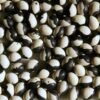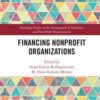
Geven en werven in de culturele sector in Nederland, 2011-2020
De cultuursector in Nederland werft steeds meer inkomsten uit particuliere bronnen en is steeds ondernemender, maar blijft sterk afhankelijk van overheidssubsidie. Dit blijkt uit een onderzoek van het Centrum voor Filantropische Studies van de Vrije Universiteit Amsterdam naar veranderingen in het geefgedrag en de inkomsten van culturele instellingen die geregistreerd zijn bij de belastingdienst als…
Lees meer
Follow the crowd: Social information and crowdfunding donations in a large field experiment
Purposely guiding human decision making with a discrete suggestion, ‘nudging’, is increasingly popular. One particularly promising nudge is to provide decision makers with information about the decisions of others, also referred to as social information. Social information is often applied in fundraising campaigns to increase individual donations. A discrete suggestion such as the donation amount…
Lees meer
Crowding-out or crowding-in: The dynamics of different revenue streams
An important question in public economics is to what extent changes in government funding lead to changes in private donations. In this chapter we identify and summarize four theoretical perspectives answering this question: the micro-economic, institutional-political, institutional signaling, and organizational perspective. Reviewing the empirical support for each perspective, we find that none of the perspectives…
Lees meer
Jubileumspecial: Twintig jaar Geven in Nederland
Hoe is de filantropie in Nederland in de afgelopen twintig jaar veranderd? Hoe kunnen we de veranderingen in het geefgedrag verklaren? In welke groepen doen deze trends zich het sterkst voor? En welke groepen maken de filantropie veerkrachtig? Prof. dr. René Bekkers, Prof. dr. Pamala Wiepking en Dr. Arjen de Wit beantwoorden deze vragen in…
Lees meer
De Geefwet en donaties aan cultuur in Nederland
Sinds giften aan culturele instellingen fiscaal gezien aantrekkelijker zijn geworden, zou je misschien verwachten dat de Nederlanders meer zijn gaan geven aan culturele instellingen. Maar is dat ook zo? In 2012 is de Geefwet ingevoerd. Een belangrijk onderdeel van deze wet is de multiplier voor giften aan culturele instellingen, die deze verhoogd aftrekbaar heeft gemaakt….
Lees meer
Crowdfunding: Een nieuwe inkomstenbron voor de culturele sector?
In de culturele sector heeft crowdfunding de aandacht getrokken als een nieuwe manier van geld inzamelen onder het publiek. In welke context is het opgekomen, wat is de omvang, en wat zijn enkele succesfactoren?
Lees meer
Giving in the Netherlands: A Strong Welfare State with a Vibrant Nonprofit Sector
The Netherlands has a rich philanthropic history, dating back to the late Middle ages (Prak, 1998). Before the modern welfare state, poor relief in the Netherlands was predominantly provided by the religious elites. As early as 1500, local clergy and noble men provided poor relief to those who lacked substantial means (Prak, 1998). The main…
Lees meer
Gulle gevers? Private bijdragen aan cultuur in Nederland
Sinds de overheid in 2010 besloot haar bemoeienis met cultuur te beperken en de samenleving en particulier initiatief meer ruimte te geven, speelt privaat geld een grotere rol in de verdien capaciteit van cultuurinstellingen. Dat heeft consequenties voor hun organisatorische inrichting, maar ook voor hun relatiebeheer. Gevers worden stakeholders: als sponsor of als donateur.
Lees meer
Generosity and philanthropy: A literature review
We present an overview of the academic literature on philanthropy, divided in two parts. In part one, we discuss the question of who gives how much; in part two, we discuss the question of why people give. In part one, we survey the literature on characteristics of individuals and households that are related to giving….
Lees meer
